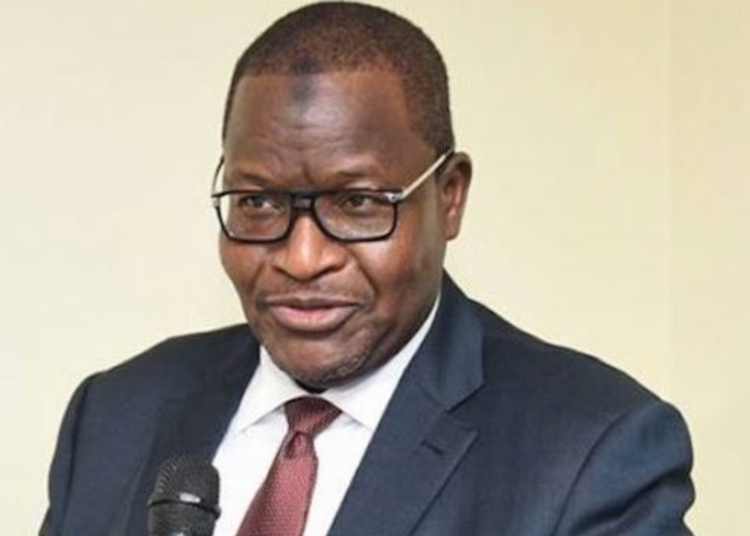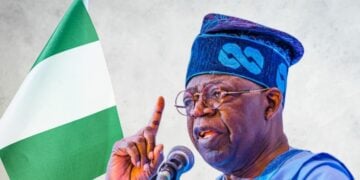Several studies have pointed to the fact that no economy in the world can grow without taxation, as it is a veritable tool for economic development. As a matter of fact, countries like the United Kingdom and the USA relied heavily on tax to grow their economy.
Nigeria, widely known to be not only Africa’s most populous country but also the largest economy on the Continent, is not in isolation, as taxation is the backbone for its public finance.
For instance, in 2022 alone, the Federal Inland Revenue Service (FIRS), in its Performance Update report, revealed that it received N10.44 trillion in tax revenue.
In the first quarter of 2023, the National Bureau of Statistics (NBS) revealed that the information and communications sector was one of the top contributors to Company Income Tax (CIT), as telecommunication consumers, firms, and other players in the information and communications sector paid N119.87 billion as taxes in the quarter under review.
According to the executive commissioner, stakeholder management, Nigerian Communications Commission (NCC), Mr. Adeleke Adewolu, „Taxation provides guaranteed and sustainable sources of funding for social programs and public investments; it also serves as a tool curated by the government to effectively and efficiently distribute our commonwealth. It is thus evident that taxation is critical for making growth sustainable and equitable.
„Taxation by design is an instrument for economic development, and it is important to acknowledge and support the initiative of all tiers of government in using taxation as an instrument for socio-economic development.“
Multiple taxation, bane to economic growth
However, despite the possibility of accelerating economic growth through taxation, multiple taxation, or „nuisance taxes,“ as the World Bank has dubbed it, has been and continues to be a hindrance to Nigeria‘s economic development.
Adewolu fittingly puts it when he said, „supporting the tax initiatives by the various tiers of government includes indicating where a category of taxes has become cancerous to economic development. These types of taxes typically manifest themselves in the form of multiple taxation and by design, they reverse growth, stifle innovation, and discourage investment. In parabolic terms, they are the scarecrows mounted by the government to disincentivize development.“
He defined multiple taxation as the imposition of the same or similar taxes on the same income base, transaction, or person by one or more levels of government, in one or more jurisdictions.
While a level of multiplicity is expected in a federal system of governance, the levying of a particular tax on the same person/entity, in respect of the same liability by more than one state or local government council should be avoided, the executive commissioner advised.
„The paradox of multiple taxation is that it does not lead to an increment in government revenue; rather, the crippling effect of these taxes is that it makes otherwise profitable businesses unprofitable. It negatively impacts the ease of doing business, shrinks the tax base, incentivizes tax evasion, and complicates tax compliance.
„According to the World Bank, taxing a specific tax base will lead to increasing revenues up to a specific point, after which the overall tax revenue will decline because companies go out of business, or evasion increases significantly. In addition to these challenges, the economic burden of multiple taxation is further exacerbated by the administrative burden of complying with these taxes. It further makes Nigeria an undesirable ground for breeding healthy business and competitive practices.
„The effect of this is that business enterprises in Nigeria struggle to compete with their counterparts abroad. These incidents weaken our economic foundations, devalue the symbol of economic strength, which is our currency – the Naira, and contract our gross domestic product,“ Adewolu further explained.
Stakeholders in the ICT sector have identified some of the major challenges facing telecommunication companies to include multiple taxation and destruction of facilities by vandals.
According to the executive vice chairman, NCC, Prof Umar Danbatta, the challenges being faced by the Commission include 41 categories of taxes imposed on telecommunications companies and willful destruction of facilities.
Danbatta noted that as of last year, the total number of taxes being paid by the telecom operators stood at 41, and as of the second quarter of this year, it has increased to 46.
Head, Enterprise Sales, FiberOne Broadband Limited, Mr. Kenny Joda, vividly explained how multiple taxation is impacting negatively on Internet Service Providers (ISPs).
He said, „Some states continue to charge telecom companies, as high as N1,500 per linear meter of fiber compared to the N145/m fee approved by the federal government. The absence of a unified RoW fee across the country keeps stalling the advancement of fiber networks. The worst of it is the fact that, after paying N1500, you will still have to settle area boys, as they are ready to destroy your infrastructure if you don‘t settle them,“ Joda disclosed.
Tackling multiple taxation
To tackle the issue of multiple taxation, the executive commissioner appealed that taxation should seek to be neutral and equitable between forms of business activities, adding that a neutral tax will contribute to efficiency by ensuring that the optimal allocation of the means of production is achieved.
„Also, compliance costs to business and administration costs for governments should be minimized as far as possible. Tax rules should be clear and simple to understand so that taxpayers know where they stand. A simple tax system makes it easier for individuals and businesses to understand their obligations and entitlements. As a result, businesses are more likely to make optimal decisions and respond to intended policy choices.
„Taxation should produce the right amount of tax at the right time, while avoiding both double taxation and unintentional non-taxation. In addition, the potential for evasion and avoidance should be minimized, and taxation systems should be flexible and dynamic enough to ensure they keep pace with technological and commercial developments.
„It is important that a tax system is dynamic and flexible enough to meet the current revenue needs of governments while adapting to changing needs on an ongoing basis,“ Adewolu further advocated.
The Nigerian government is not blind to the fact that multiple taxation can cripple the country‘s economy, hence the reason the federal government, in the National Tax Policy 2017, emphasized the need to eradicate multiple taxation at all tiers of government.
Specifically, the Policy states that taxes similar to those being collected by a level of government should not be introduced by the same or another level of Government. The federal, state, and local governments shall ensure collaboration in harmonizing and eliminating multiple taxation.
The president and Commander-in-Chief of the Federal Republic of Nigeria, President Bola Ahmed Tinubu, in his commitment to address the vexed issue of multiple taxation, recently signed a number of Executive Orders to curb arbitrary taxes in the Country.
Also, the inauguration of the Committee on Fiscal Policy, Tax Reforms by the President, which is geared towards harmonizing taxes, will provide an avenue to further engage various stakeholders in order to identify their pain points and critical concerns bothering tax and fiscal policies.
„This would also facilitate a conducive environment for local and foreign investment into the country,“ Adewolu averred.
But more needs to be done, as the NCC has been engaging with the Minister of Communications, Innovation, and Digital Economy, to highlight the current tax issues in the industry and why telecom should not be mentioned in relation to excise duties.





